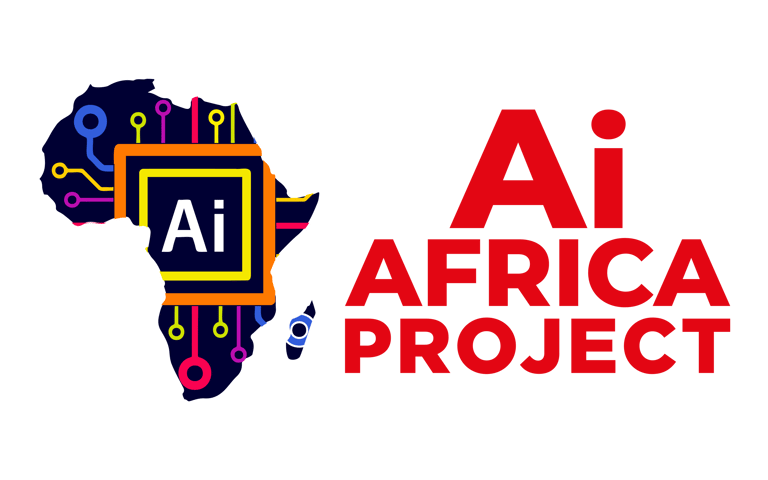Imo State Digital City AiAfrica Training
Targeted 2 million Imo State Citizens were trained in Ai Prompt Engineering at the Digital City Limited Center at Imo State
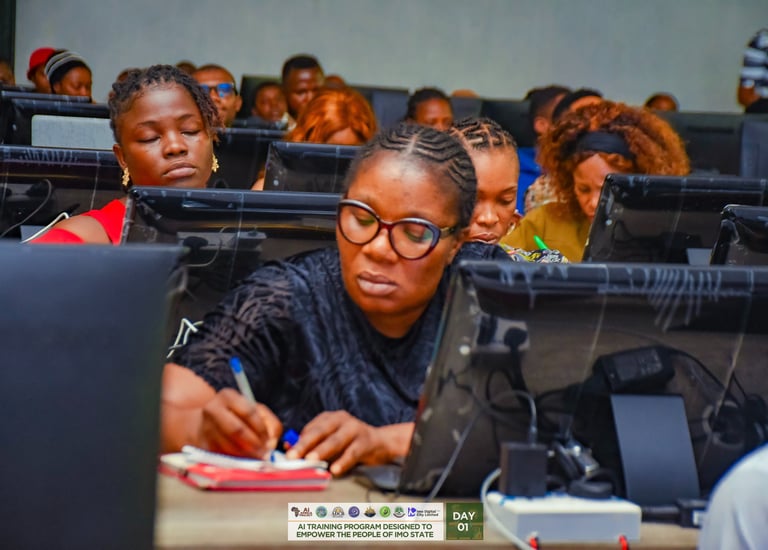

Ongoing Training in Prompt Engineering
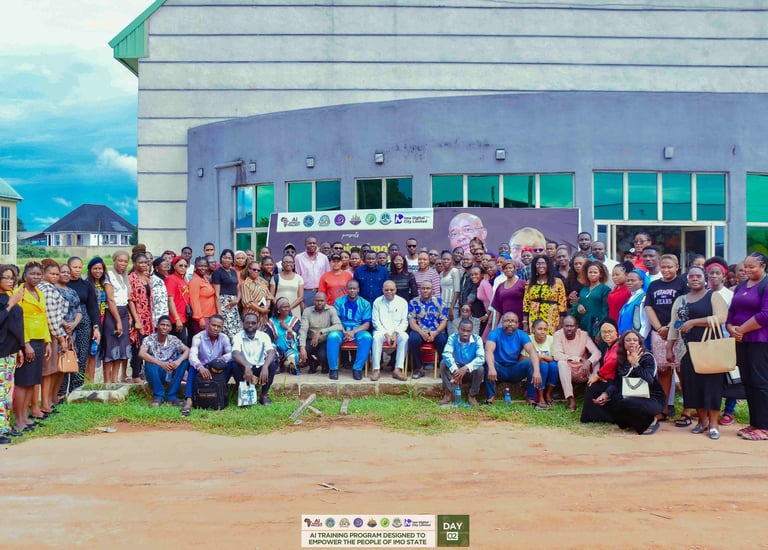

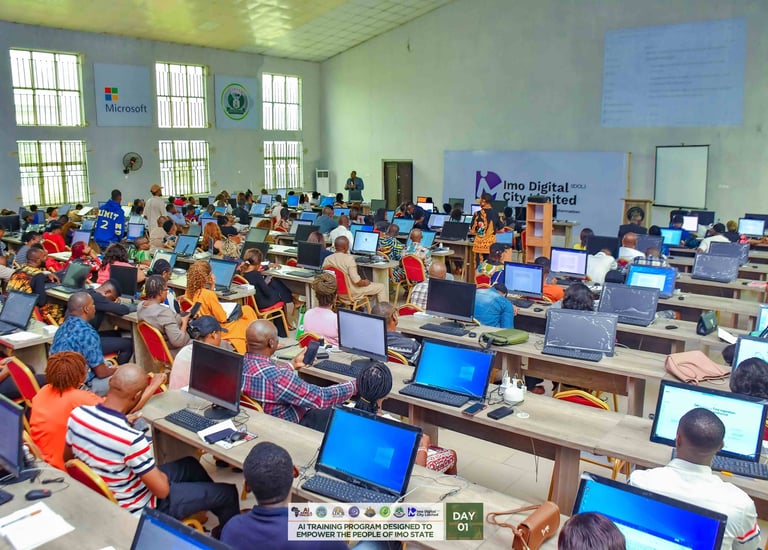

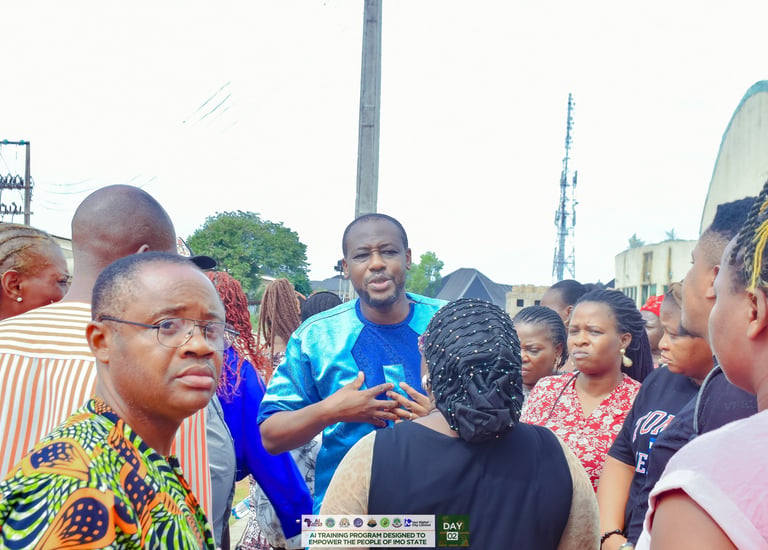

AiAfrica Project Labs will be hosted in Imo State in various sectors such as Agriculture and Agri-Business. Renewable Energy, Fintech, Ports and Maritime, Health, Mining, Oil and Gas, Fashion and Dress Marking among others


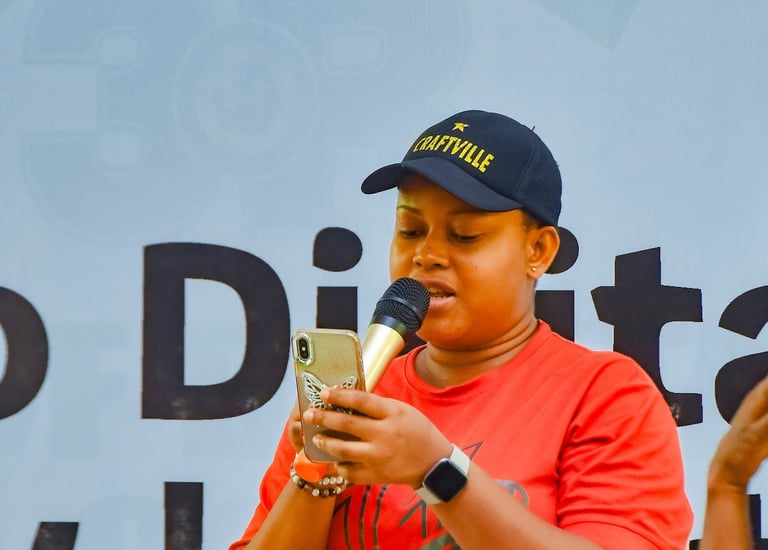



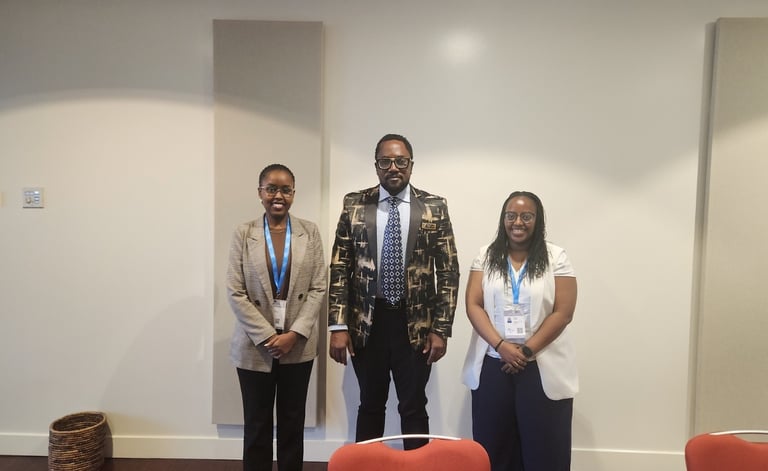

Amb. Hugh, Vanuatu Trade Commissioner to Ghana, together with representatives from the Ministry of ICT and Innovation, participated in the AI Summit held in Rwanda in April 2025.



Training Programs
Join the AiAfrica Team and become an Ai Expert


PROMPT ENGINEERING




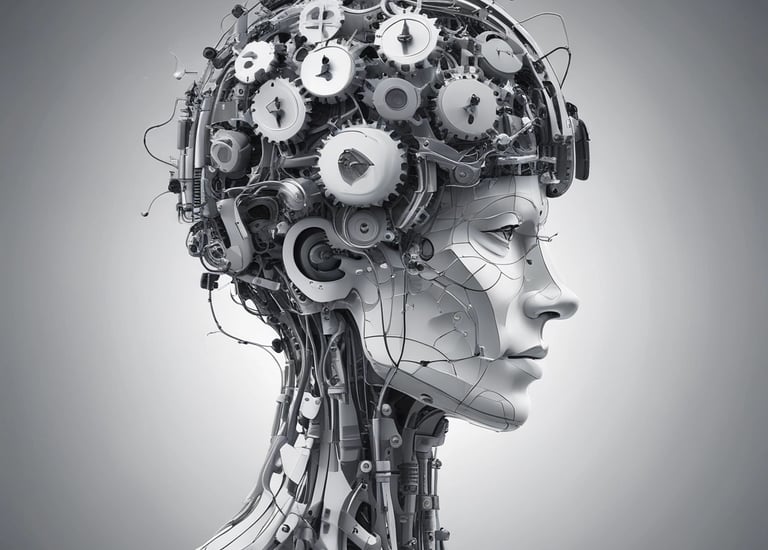

DEEP LEARNING
MACHINE LEARNING
AI for Social Good & Policy
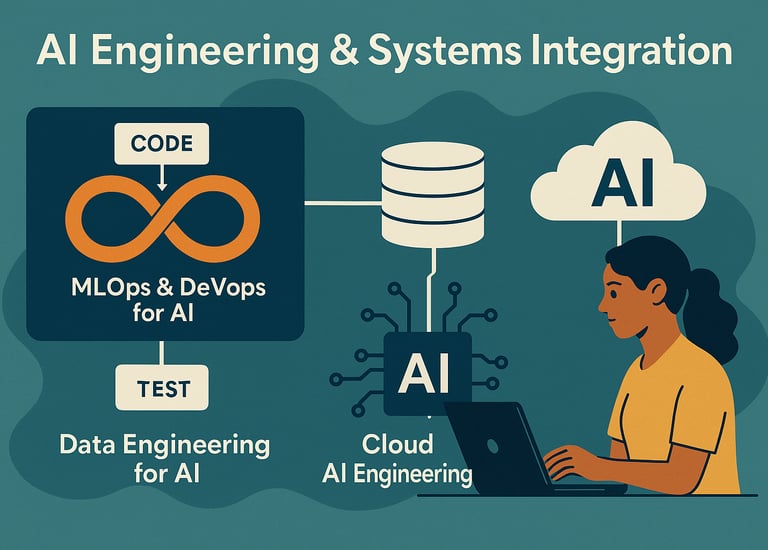

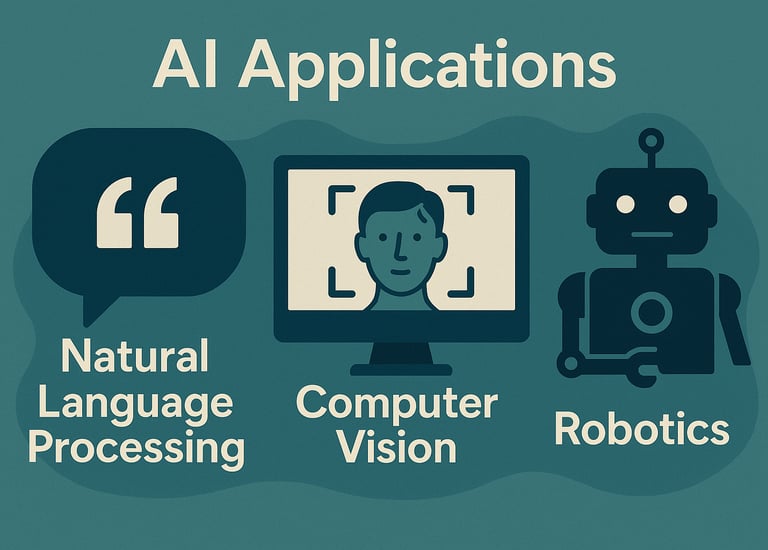

AI Engineering & Systems Integration
Cognitive Computing & Neurosymbolic AI
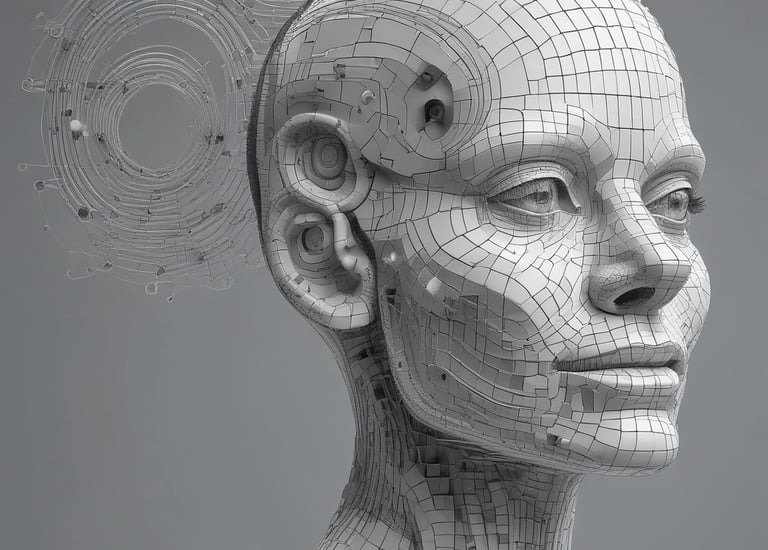

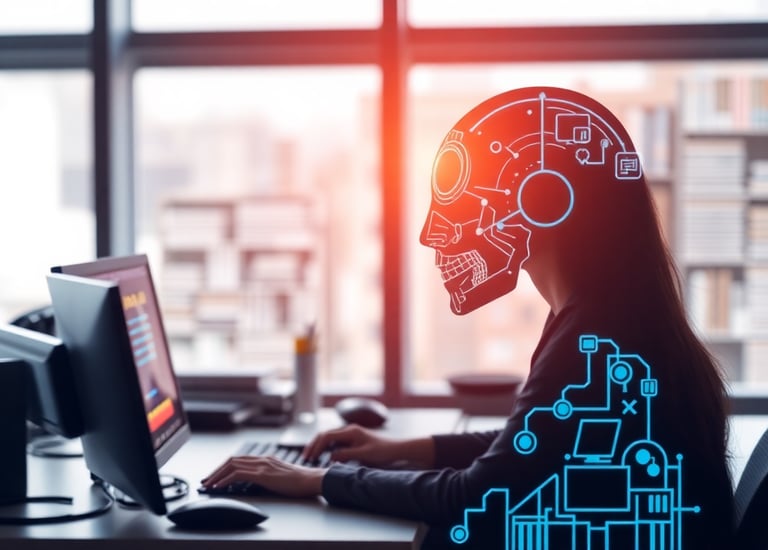

Generative AI & Foundation Models
AI Education, Coaching & Thought Leadership
Artificial Intelligence (AI) is revolutionising the education sector by enhancing how teachers teach, students learn, and institutions operate. At its core, AI in education enables personalised learning experiences, automates routine administrative tasks, supports data-driven decisions, and unlocks new opportunities for creativity and critical thinking. By integrating AI into classrooms and campuses, educators can better identify student needs, tailor instruction, and improve outcomes, while also preparing graduates with essential digital skills for the future world of work
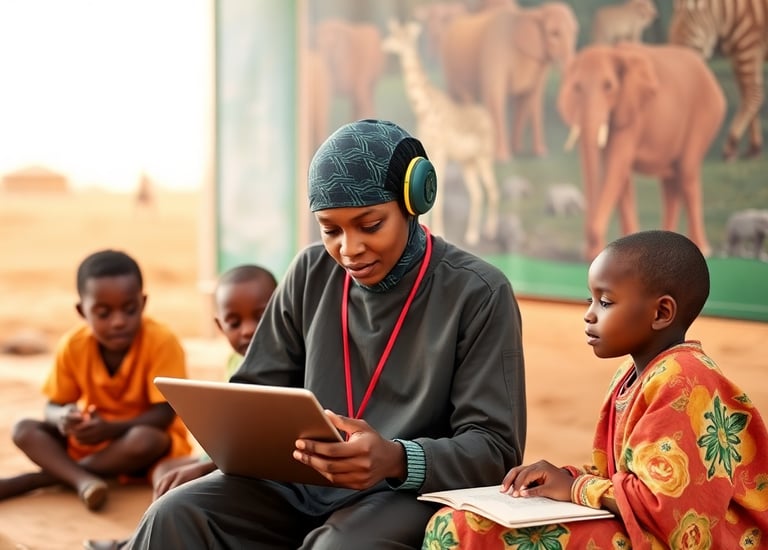

AI in Curriculum Development
Participants learn how to use AI tools to design adaptive curricula, personalise learning paths, and create engaging digital content tailored to diverse student needs.
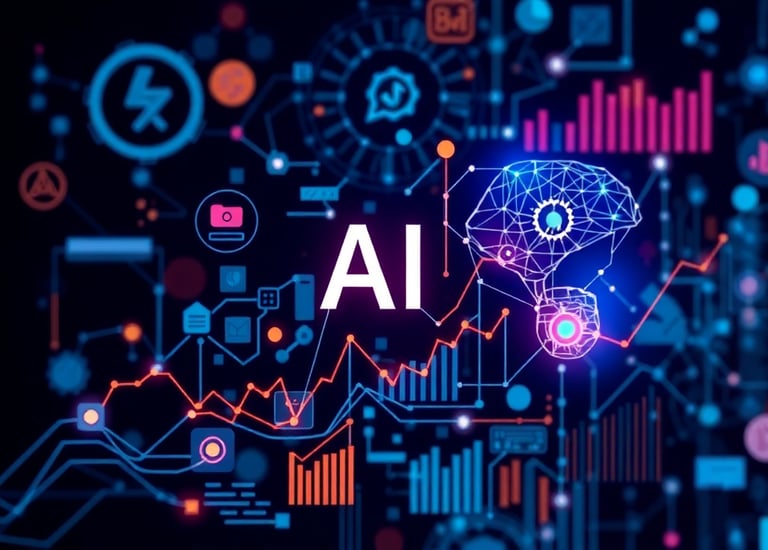

AI for Educational Data Analytics
This area equips staff to harness AI for analysing student performance, predicting outcomes, identifying learning gaps, and supporting data-driven decision-making




AI-Enhanced Assessment and Grading
Faculty explore AI-powered systems for automating grading, detecting plagiarism, and providing instant feedback, streamlining evaluation processes and increasing fairness.
AI in Research and Academic Writing
Staff receive training in leveraging AI for literature review, academic writing assistance, data analysis, and research management, accelerating scholarly productivity
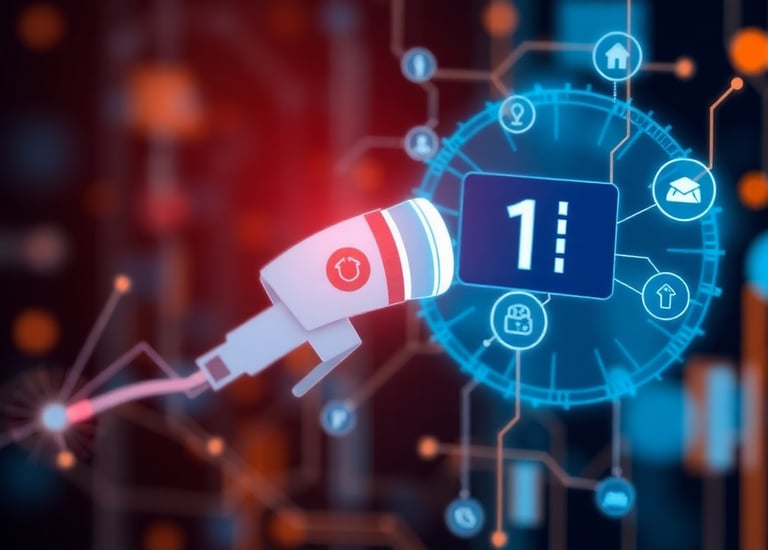

Learn how AI can automate routine administrative tasks, optimise resource allocation, and enhance institutional management, improving operational efficiency across departments.
AI for Administrative Efficiency


AI in Student Support Services
This specialty focuses on AI-driven chatbots, virtual tutors, and counselling platforms that offer personalised academic and wellbeing support to students.


AI in Library and Information Services
Staff are trained to use AI for digital cataloguing, intelligent search, content recommendation, and knowledge management, transforming the library experience.
AI Training in Education
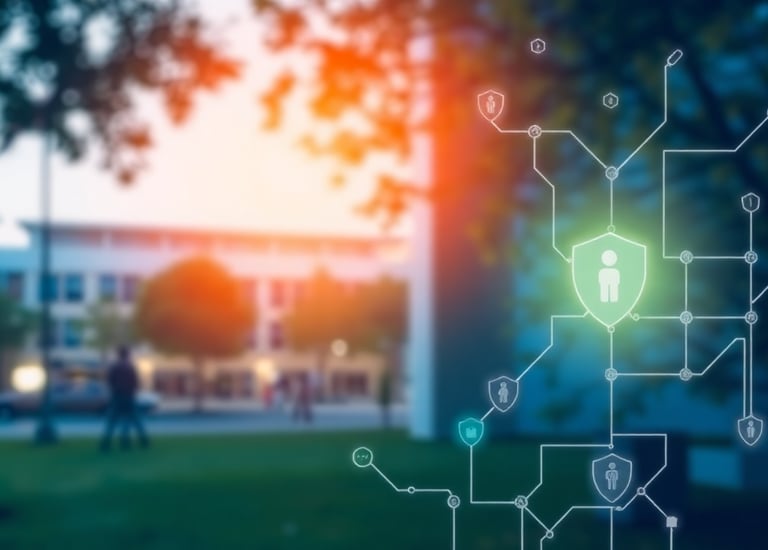

AI for Inclusive and Special Needs Education
Learn how AI can automate routine administrative tasks, optimise resource allocation, and enhance institutional management, improving operational efficiency across departments.


AI for Campus Security and Safety
This area covers the use of AI to support students with disabilities, enabling the development of accessible learning materials and adaptive technologies.
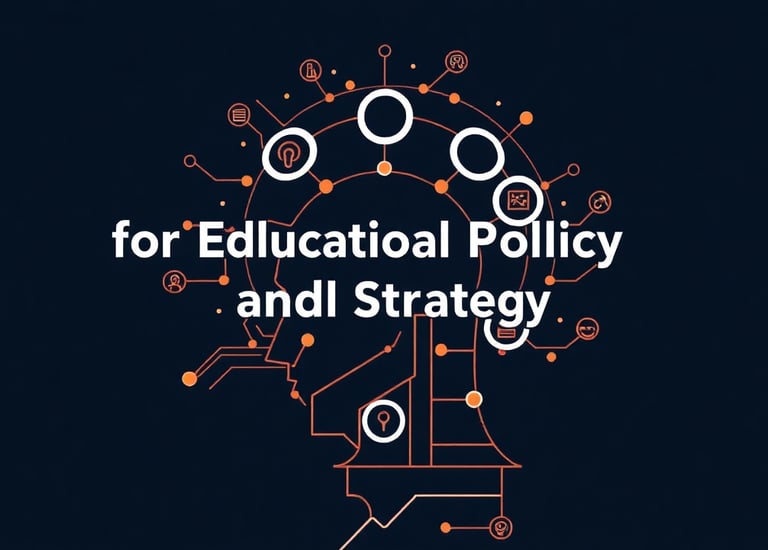

AI for Educational Policy and Strategy
Participants gain insight into how AI can inform policy formulation, strategic planning, and institutional decision-making, driving long-term transformation in education.
Upcoming Training for Africa
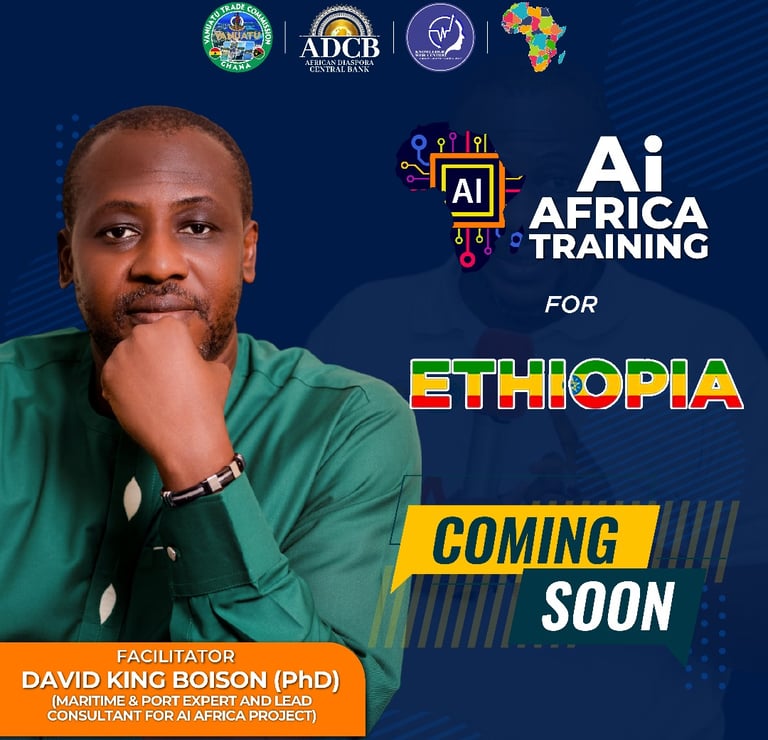

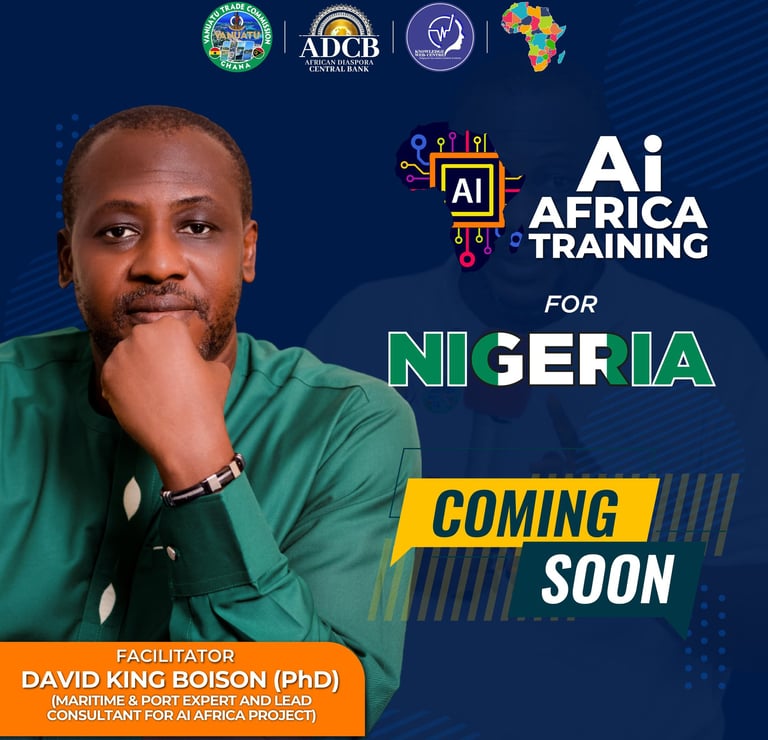

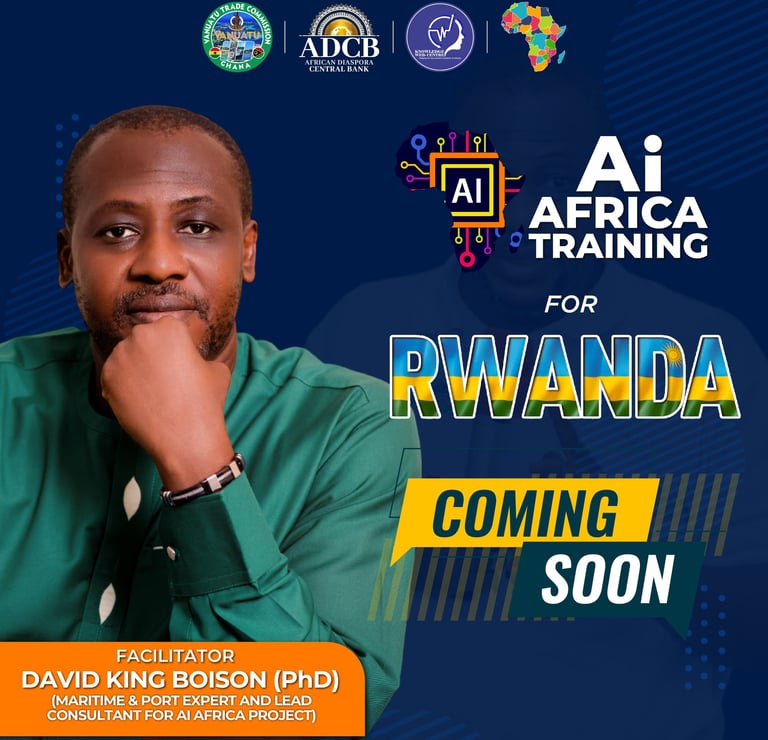

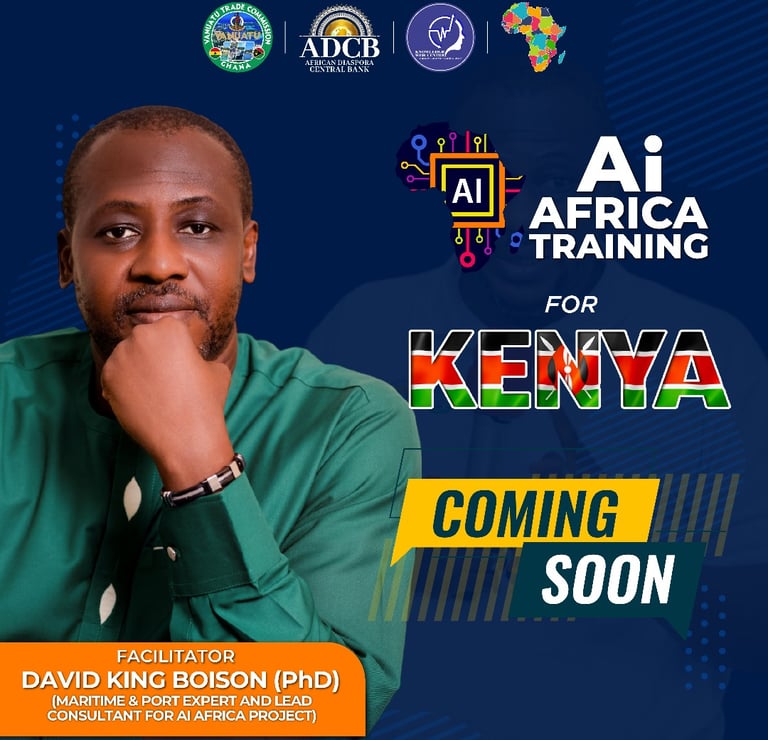

The AiAfrica Training is rolling out from January 2025 to December 2028, with a bold mission to equip millions of Africans with cutting-edge artificial intelligence skills. We are inviting stakeholders, development partners, institutions, and innovators to collaborate with us in this continent-wide effort to drive economic transformation and digital empowerment.
Be part of Africa’s AI revolution. For partnership opportunities or to learn more, reach out at aiafricastimulus@gmail.com or WhatsApp +233 207 696 296. Together, let’s shape Africa’s future!
”It has been ab awesome experience , colorful and amazing .”
- Mercy Ai Trainee from Nigeria
” Trainees and management of Jospong Group of Companies express their enthusiasm and satisfaction with the program .”
- Ai Training at Jospong Group of Companies

Testimonials

”Impressed with the efficiency and professionalism. The entire process was smooth and hassle-free.”
-Winnie Ai Platinum from Ghana

”It has been an inspiring and transformative experience. .”
- Belinda Ai Platinum Trainer from Ghana


”It has been very insightful learning about the Ai. Definitely going to make our work easy. .”
- Joana Ai Trainee from Jospong Group of Companies

”Bering introduced to Ai has been a short of a transformation journey .”
- Nana Yaw Ai Platinum Trainer from Oil and Gas Industry

Frequently asked questions
What is AiAfrica?
AiAfrica is a continental initiative sponsored by the African Diaspora Central Bank (ADCB) in collaboration with the Vanuatu Trade Commission–Ghana. Its mission is to train 11 million Africans in Artificial Intelligence technologies by 2028, empowering the continent to lead in the Fourth and Fifth Industrial Revolutions (4IR & 5IR).
How many people have been trained so far?
To date, over 250,000 individuals have been trained across Ghana, Nigeria, Eswatini, Zambia, Gambia, South Africa, and Liberia, supported by a network of over 4,000 certified AI trainers on the ground.
Who is the training designed for?
The AiAfrica program is open to Africa’s youth, government institutions, private sector businesses, educational institutions, universities, and artisans. It aims to build a digitally empowered workforce capable of leveraging AI for development, innovation, and economic transformation.
Who leads the training and coordination?
The training is delivered and managed by Knowledge Web Center Ghana Limited, the lead consulting organization for AiAfrica. The initiative is spearheaded by Dr. Dr. David King Boison, a renowned AI and Prompt Engineering Expert, as well as a distinguished Maritime and Ports Strategist. He serves as the Lead AiAfrica Icon driving this transformative mission.
How much does it cost?
The training is completely free to all participants. It is fully funded by ADCB and its partners, ensuring equitable access to cutting-edge AI education and tools across all 54 African countries.
How does the AI training work?
Participants are introduced to AI through structured levels of Prompt Engineering—Foundational, Intermediate, and Advanced—designed to serve all disciplines and sectors. Training covers real-world applications in agriculture, healthcare, maritime, education, civil service, and beyond. In addition to Prompt Engineering, the program includes modules on Machine Learning, Deep Learning, and the integration of AI into business processes and institutional workflows. The approach is hands-on, inclusive, and localized to meet the needs of diverse African communities.
How can I contact you?
You can reach us via info@aiafrica.org or visit our official website to learn more about how to enroll, collaborate, or participate in upcoming training sessions. Follow us on social media for live updates, announcements, and success stories.
Where can I learn more?
To explore AiAfrica’s vision, progress, and impact, visit our website’s "About Us" and "Impact Stories" sections. You’ll find inspiring testimonials, regional reports, and media coverage highlighting how AI is transforming lives and institutions across Africa.

AIAfrica is empowering us to thrive in the digital age and lead Africa's future innovations.
Prince
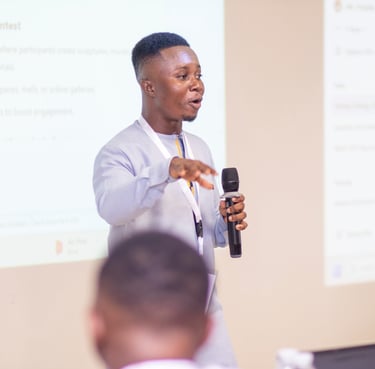
The training programs are transformative, equipping us with essential skills for the fourth industrial revolution.
Ama Mensah

★★★★★
★★★★★
Empowerment
Training youth and women for digital leadership.
CALL / WHATSAPP LINE
+233 559 853 572
© 2025. All rights reserved.
Conclusion: A $6 Trillion Opportunity Powered by AI
A 2023 analysis by the African Development Bank projects that full value chain development across Africa’s natural resource sectors could unlock over $6 trillion in cumulative economic value by 2040. AI will be instrumental in capturing this value through enhanced productivity, precision forecasting, climate resilience, and knowledge transfer.
The AiAfrica Project provides a unique opportunity to position African researchers and innovators at the forefront of this revolution. By establishing dedicated research labs, training centers, and AI deployment strategies across the 50 sectors, Africa can not only leverage its natural wealth but also secure its rightful place in the Fourth and Fifth Industrial Revolutions.
